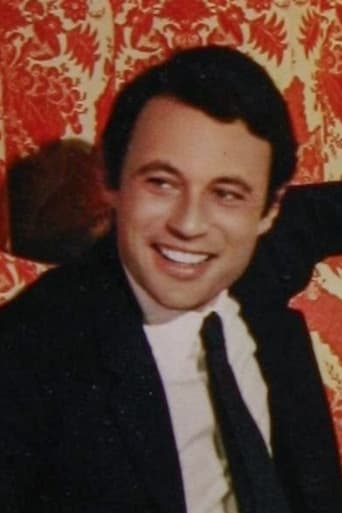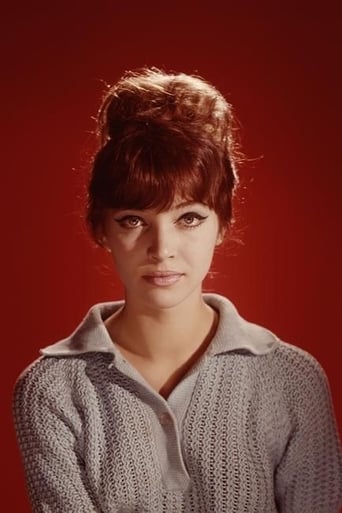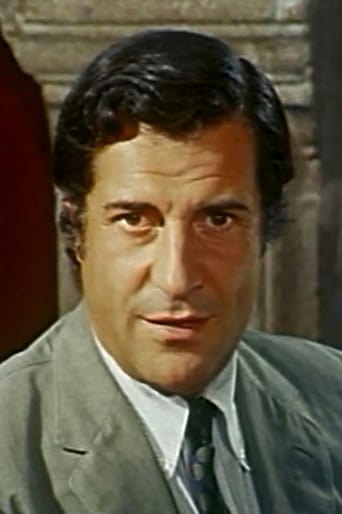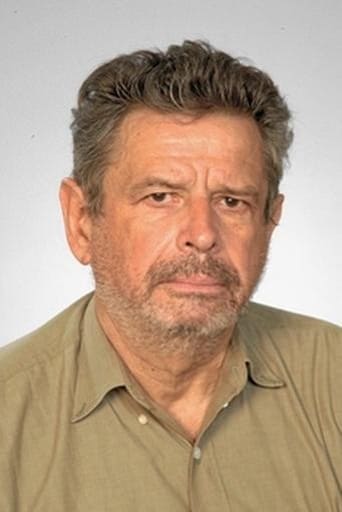Merolliv
I really wanted to like this movie. I feel terribly cynical trashing it, and that's why I'm giving it a middling 5. Actually, I'm giving it a 5 because there were some superb performances.
SanEat
A film with more than the usual spoiler issues. Talking about it in any detail feels akin to handing you a gift-wrapped present and saying, "I hope you like it -- It's a thriller about a diabolical secret experiment."
Matylda Swan
It is a whirlwind of delight --- attractive actors, stunning couture, spectacular sets and outrageous parties.
Brenda
The plot isn't so bad, but the pace of storytelling is too slow which makes people bored. Certain moments are so obvious and unnecessary for the main plot. I would've fast-forwarded those moments if it was an online streaming. The ending looks like implying a sequel, not sure if this movie will get one
gavin6942
During the Algerian war for independence from France, a young Frenchman living in Geneva who belongs to a right-wing terrorist group and a young woman who belongs to a left-wing terrorist group meet and fall in love. Complications ensue when the man is suspected by the members of his terrorist group of being a double agent.The situation in Algeria and the denunciation of the use of torture by both sides are the main themes of the movie. This led to the film being banned for three years in France.I love how huge the Algeria-France situation looms in French cinema. Do most Americans know that France had a war going on there? Probably not. And yet, it was something the movie directors and artists were very conscious of. I suspect that French film was stronger on the Algerian issue than American films were on Vietnam, at least initially.
Sindre Kaspersen
French-Swiss screenwriter and director Jean-Luc Godard's second feature film which was banned in France 1960 due to it's depictions of terrorism and released in 1963, tells a fictional story set during the Algerian War in Genève, Switzerland 1958 where Bruno Forestier, a 26-year-old member of an anti-terrorist unit and deserter falls in love with a Russian woman named Veronica.Jean-Luc Godard's linear narrative structure and brilliant direction creates good pace in this riveting Film-noir which is told through the main character's voice-over narration and explores themes such as terrorism, politics, ideals, war, life, love and death. Characteristically Jean-Luc Godard makes references to numerous directors, writers and composers while he presents his personal views through the characters political, cinematic and existentialistic dialog. Michel Subor and Anna Karina gives solid acting performances and the scenes they share which are substantiated by the camera movements and the light-setting are the most enthralling moments in this ardent piece of cinema history.
Graham Greene
Godard's first explicitly political work - produced directly following the release of his debut film, the celebrated À bout de soufflé (1960), and banned almost immediately by the French government until 1963 - is a small-scale B-picture with serious intentions and a scattering of the director's typical verve and energy. In tone, it is somewhat characteristic of the approach of the early French New Wave, and of Godard's films of this period; calling to mind the aforementioned debut and his short films, Tous les garçons s'appellent Patrick (1959) and Charlotte et son Jules (1960), with the elements of cinema vérité inspired editing and cinematography techniques - capturing the action in a hurried and uncomplicated approach of hand-held cameras and unsophisticated mise-en-scene - and featuring a few early experiments with the use of sound design and music that would become more refined throughout the director's subsequent projects; leading to the year-zero effect of Week End (1967) and his exile from "mainstream" cinema until the early 1980's.Although the film is quite clearly attempting to be a serious work - in regards to both the subject matter and the portrayal of the characters - this is still Godard at his most playful and deconstructive; tinkering with the characteristics of post-war crime cinema and the American film-noir to underline a story that is grittier and more low-key than many of his subsequent projects, such as the giddily stylised Une femme est une femme (1961) produced the following year. So, even though this particular approach and subject matter seems to point towards Godard's later, more politically minded work, such as Made in USA (1966) and La Chinoise (1967), we're still very much in the world of À bout de soufflé; with Godard simply using the political aspects of the story in the same way that he would use the science-fiction elements of Alphaville (1964) or the crime story characteristics of the much later Detective (1985); in the sense that they're mainly stylistic devises there to be exploited for the purposes of cinematic experimentation. I'm sure he meant it deep down, but at this stage in his career, Godard simply lacked the refinement of his later work, giving us a mostly straight presentation with tough guy narration, some ironic asides and an interest in moments of witty dialog and character interaction to breakdown the more conventional thriller aspects of the narrative.At its most interesting, Le Petit Soldat (1963) draws odd parallels between the shooting of a film and the shooting of a political target; with Godard invoking his cinematographer Raoul Coutard and an anecdote about location filming - "the great hassle" - and applying it to the foibles of political assassination when outside influences intervene. In one line, it is pure Godard; playful, deconstructive, self-referential and incredibly witty; we also have that great shot in which the central character, readying himself for a hit, poses from his car window with a 44. in one hand, and a picture of Hitler held in the other to slyly mask his features. What also marks this out as an interesting work for Godard is the first appearance from Anna Karina; the Danish actress that would become Godard's first wife and muse for many of his earliest and greatest films, until Made in USA and their subsequent divorce in 1967. In Le Petit Soldat it becomes clear that Godard is in love with Karina, and his interest in her is expressed cinematically, with the black and white photography of Coutard framing her beautiful features with those big wide eyes and conspiratorial smile that is perfect for a character of this nature.Godard and Karina would go on to make greater films together, such as Une femme est une femme, Vivre sa Vie (1962), Bande á part (1964) Alphaville and Pierrot le fou (1965) - all groundbreaking works - but there's a charm to her appearance here that makes the lengthy scenes between her character and the film's central protagonist fizz and pop with an unrehearsed magnetism and charisma that is (or was) characteristic of the early French New Wave. In the end, for all the grit and the prolonged scenes of psychological torture and botched political assassinations, Godard is really just playing here; playing with the ideas of politics and current events, like he played with the characteristics of Cocteau's Le Bel Indifférent with Charlotte et son Jules, or played with the crime film conventions in À bout de soufflé. Obviously, these characters aren't secret-agents, radicals or revolutionaries, but are simply actors playing at these roles; much like Belmondo was playing at being a gangster or Karina would go on to play the sitcom girl next door.Ultimately, Godard's cinema is a cinema of moments; of scenes and characters that gather in our mind during the course of the process of viewing and remain there long after the film has ended. As a result, it is often argued that one can enjoy a film of Godard's, even if they found the complete experience somewhat slow or disengaging - largely as a result of the greatness of the individual scenes. Though it remains flawed in some respects, Le Petit Soldat is certainly not a bad film, and indeed, seems bursting with fresh ideas and ideologies; many of which are a lot more subtle than Godard's detractors would perhaps give him credit for. However, even then, we can recognise this as an early work in the grand scheme of things, produced by an incredibly talented young filmmaker not yet in complete command of his identity or his craft.
zetes
And it's simply criminal that it is so unavailable. Turner Classic Movies has the rights to play it and has twice in 2001, but the film has never been available on video, at least not in the US. Le petit soldat can be very hard to follow at times, and it certainly drags a bit nearer the start, but once it gets going, it escalates into a very powerful dramatic experience. Michel Subor and Anna Karina, in her first collaboration with her soon-to-be husband Godard, are excellent as two people who work for opposite causes who meet and fall in love. The film is very moody, and often very suspenseful. The music, by Maurice Leroux, is a simple but effective piano score, played in a tragic key. The romance is not beautiful, but is also played for tragedy. Jean-Luc Godard is a name that most film lovers will know. Most of them will have seen or will someday see Breathless (A bout de souffle), his first and most famous film. Many others will find other films like Contempt, Alphaville, Pierrot le fou, Vivre sa vie (My Life to Live), and Weekend. But this great auteur, more than almost any other, has so many great forgotten works that it particularly depresses me. Le petit soldat is one of the best (I give it a 9/10). Also valuable and underseen are Une femme est une femme, Les carabiniers, Bande a part (Band of Outsiders), First Name: Carmen, Hail Mary, and his segment from Aria, to name just the ones I have seen. There are many, many more after that.




